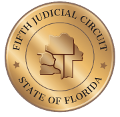According to section 44.1011(2), Florida Statutes (2017), “mediation means a process whereby a neutral third person called a mediator acts to encourage and facilitate the resolution of a dispute between two or more parties. It is an informal and non-adversarial process with the objective of helping the disputing parties reach a mutually acceptable and voluntary agreement. In mediation, decision-making authority rests with the parties. The role of the mediator includes, but is not limited to, assisting the parties in identifying issues, fostering joint problem solving, and exploring settlement alternatives.”
According to Florida Rule for Certified and Court-Appointed Mediators 10.210, “mediation is a process whereby a neutral and impartial third person acts to encourage and facilitate the resolution of a dispute without prescribing what it should be. It is an informal and non-adversarial process intended to help disputing parties reach a mutually acceptable agreement.”
The statute and rule define mediation as a process which encourages and facilitates dispute resolution by using a mediator who must have no connection to the case, must be able to remain impartial throughout the process, and must encourage the parties to make their own decisions.
In mediation, the parties are not limited to only discussing issues raised by the pleadings. They may discuss any issues which they choose to discuss.
While mediation may be ordered by the court, section 44.102, Florida Statutes, it may also be voluntarily initiated by the parties either before or after filing a lawsuit. Further, there are statutes that call for mediation when no lawsuit is pending.
